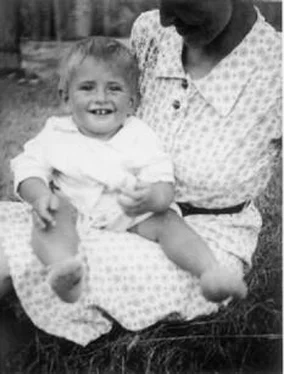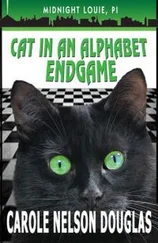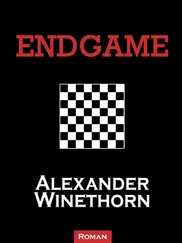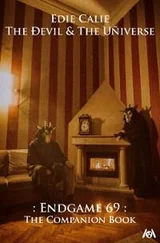There was another person, an associate of Muller’s, who also made the journey to Russia. A biophysicist, the associate was then known as Hans Gerhardt Fischer, but he’d changed his name from Leibscher to make it sound less Jewish as anti-Semitism took hold in Germany. Fischer secured a position at the Moscow Brain Institute, and in November 1933 he and Regina, who was then twenty, fell in love and were married in Moscow. A few years after the marriage their daughter Joan was born. With anti-Semitism flourishing in the USSR under Joseph Stalin, the young couple realized they and their infant were in danger. Although Regina had spent six years studying to be a physician, she left before completing her degree, took the baby to Paris, and settled there, working as a teacher of English.
She and Hans Gerhardt had separated before they left Moscow, although they were still legally husband and wife. As it became probable that Germany would soon invade France, Regina, who held American citizenship, arranged to take Joan to the United States, but Hans Gerhardt, who’d moved to Paris to be near his daughter, was a German and therefore wasn’t permitted entry into the United States. Facing an uncertain fate, he left Europe and eventually settled in Chile. Regina divorced him for nonsupport in 1945, when she was living in Moscow, Idaho. The coincidence of a marriage and then a divorce both occurring in cities named Moscow was ironic enough to make headlines in local newspapers.
Regina Fischer had no long-term residence during the early 1940s. Rather, she carted Joan from place to place as the United States struggled with the end of the Depression and the country’s entry into the Second World War. She and her daughter lived barely above the poverty level. In June 1942, Regina became pregnant with her second child—Bobby—and she sent the five-year-old Joan to St. Louis to stay with Regina’s father, Jacob Wender, during her pregnancy. When Bobby was born at the Michael Reese Hospital in Chicago on March 9, 1943, Regina was homeless. She named her newborn Robert James Fischer, and Hans Gerhardt Fischer was listed as the father on the birth certificate, despite the fact that he’d never entered the United States. After spending about a week in the hospital, Regina and her baby moved into the Sarah Hackett Memorial House, a hospice for single mothers who lacked funds to provide for the welfare of themselves or their infants. Once there, Regina called her father and told him to bring Joan back to Chicago to join them, but the hospice refused to provide housing for the older child. When Regina refused to move, she was arrested by an officer of the Chicago Police Department for disturbing the peace, and she, Bobby, and Joan were forced to move out. She waived a jury trial, was ordered to have a psychiatric examination, and was found not guilty by a judge. The psychiatrist’s bizarre report stated that Regina had a “stilted (paranoid) personality, querulous, but not psychotic.” She immediately landed a job as a typist for the Montgomery Ward company and moved to an inexpensive one-room flat on the South Side of Chicago—2840 South Lake Park Avenue, Bobby Fischer’s address during the first weeks of his life.
As Regina struggled to raise her children as a single parent, she begged for money from Jewish welfare agencies and other social institutions, from her father, Jacob Wender, and from anyone else whom she felt she could approach. Money was forthcoming, but it was never enough and it came too slowly. Always struggling financially and without support from a husband, Regina, during the war years, went wherever she could find work. One of Bobby’s first memories, when he was just a toddler, was of living in a trailer “out west.” “Out west” could have meant California, Idaho, Oregon, Illinois, or Arizona. The family lived in all of those places before moving to New York. Regina’s flexibility and desperation led her to a surprising gamut of jobs. She was a welder, schoolteacher, riveter, farm worker, toxicologist’s assistant, and stenographer, all throughout the early and mid-1940s.

Six-year-old Bobby studied the maze. His effort lasted only a few seconds. He lifted his stubby number-2 yellow pencil and began to trace the route to a damsel imprisoned in a castle cell in the puzzle’s center. To rescue her, the knight, armed with a lance, would have to determine the proper starting point to get to the damsel, and then move her from her prison to the concluding space without crossing a line. At first, Bobby entered the maze at the top right corner. Working his way hurriedly through the alleys, circles, roundabouts, and barriers, he found himself trapped in a dead end, deadlocked and defeated.
He quickly erased his work, put down his pencil, and studied the problem before him, deciding that if he began the journey at a different corner of the puzzle, he might find access to the damsel’s cell. He let his eyes examine each of the remaining starting-point possibilities—top left, bottom left, and bottom right—and then, in a form of backward reasoning, tracked the path from the princess to the knight. After several minutes, he saw that there was one path and one path only that led to the maiden—starting at bottom left. Now understanding the maze’s algorithm, he took up his pencil again, cut though the Gordian knot, and completed the task.
His next task, to get to the treasure left by a gold miner in a more intricate and difficult maze, at first defeated him when he tried to solve it prematurely, without sufficient study. He flung his pencil down in frustration and grabbed a brown crayon, but this time he paused. Soon the answer became clear, and he felt silly that he hadn’t seen the solution immediately. “Look, Joanie!” he said proudly to his eleven-year-old sister. She nodded in approval.
Parcheesi was a game that held Bobby’s interest for a while. He liked moving his tiger and elephant pawns through his opponent’s blockades, but he became furious if, owing to a toss of the dice, he was captured and sent back to “Start.” Other board games, such as Trouble and Sorry, were also problematic: If a touch of bad luck stymied his plans, he became angry and would abandon the game. Ultimately, he rejected all games of chance.
To keep rambunctious Bobby occupied—in today’s parlance he might be referred to as hyperactive—Regina bought books such as 50 Peppy Picture Puzzles for Girls and Boys , and Pencil Puzzles: Sharpen Your Pencil, Sharpen Your Wits , which contained mazes, picture puzzles, and word games. Bobby would always go first to the mazes. Later, he became enamored of Japanese interlocking puzzles and dimensional wooden puzzles shaped in the form of an automobile or an animal. He would disassemble the fifteen or so pieces and spread them at random on the table or floor, then see how fast he could reassemble them. Speed of accomplishment was as important to him as solving the puzzles’ mystery.

In early 1949 Regina Fischer took the least expensive housing she could find when she moved the family—Bobby, Joan, and herself—to East 13th Street in Manhattan, facing the kitchen back entrance of the famed Luchow’s restaurant, where many of the best chess players would occasionally dine. The Fischers could never afford to eat there. The apartment’s entrance was marred by a rusty fire escape running up the front, and there was only one small bedroom—but the rent was $45 a month.
Located downstairs on the same street was what is known in New York City as a “candy store.” The small shop sold newspapers, magazines, toys, games, ice cream, sundries, and of course, candy. In March of 1949, on a rainy day when Bobby had just turned six, his sister, Joan, looking for yet another game to amuse or occupy her restless little brother, bought a plastic chess set for $1 at the candy store. The hollow pieces were barely taller than an inch, and the set came with a folding cardboard chessboard that had red and black squares. Neither Joan nor Bobby had ever seen a chess set before, but they followed instructions printed on the inside of the top of the box, with Joan acting as instructor even as she figured out the rules for herself. After describing which piece was which by name, the rules went on to explain the intricacies of how each piece moved: “The Queen moves as many squares in any direction as is possible, the Knight moves in an L shape and can jump over other pieces or pawns,” etc. Only a few other rudimentary hints were offered, such as that white should move first, and the object of the game was to checkmate, but not actually capture, the king.
Читать дальше



![Антон Текшин - EndGame [СИ]](/books/394477/anton-tekshin-endgame-si-thumb.webp)









